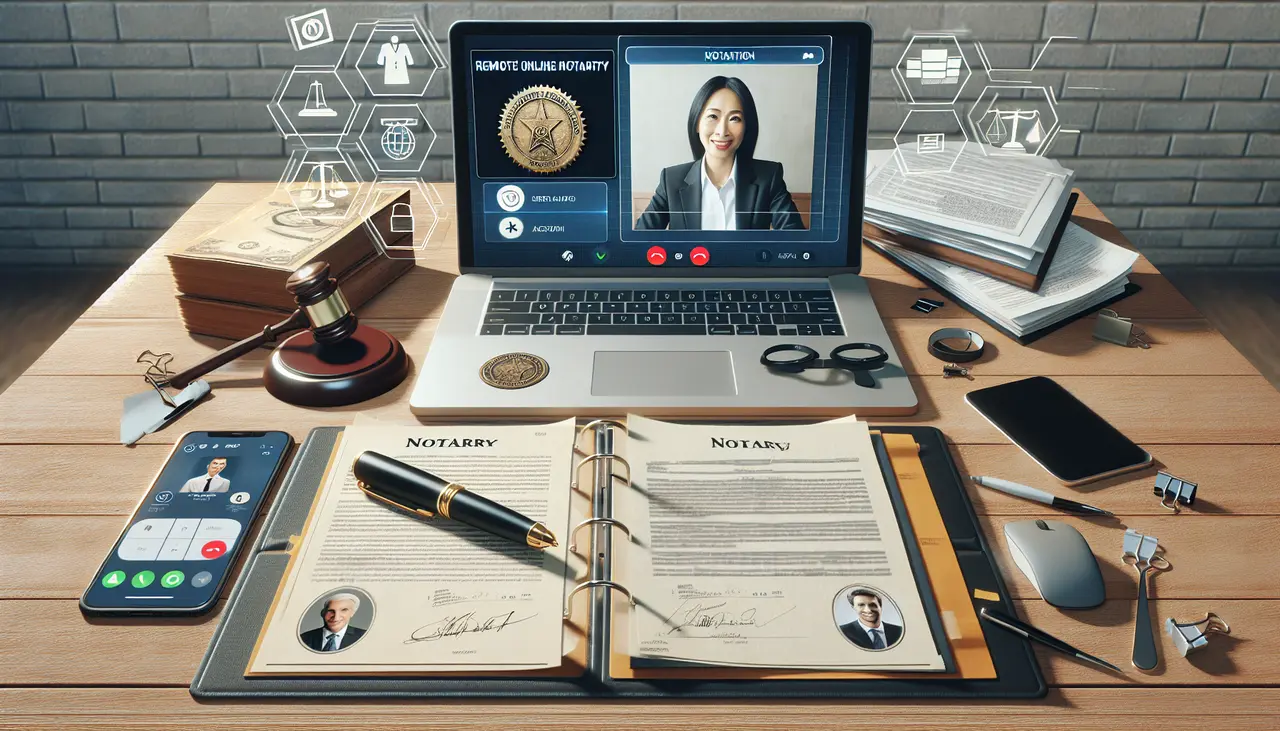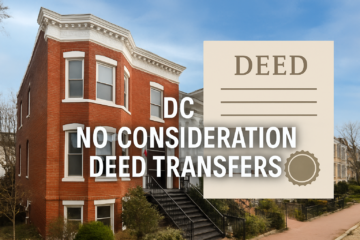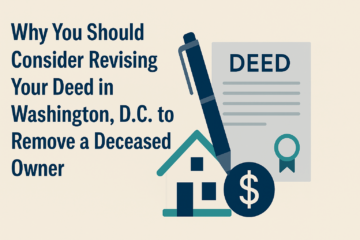Navigating the world of real estate can be a complex and sometimes daunting task. With technological advances, online notarization has become a convenient tool for many. But what does it entail, how does it work, and what should you know before diving in? This blog aims to provide you with clear and concise answers to some of the most common questions about online notarization in the real estate sector.
1. What Is Online Notarization?
Online notarization, also known as remote online notarization, is the process of getting documents notarized electronically. This means that the notary public and the signer do not need to be in the same physical location, making it a convenient option for real estate transactions.
The convenience of online notarization cannot be overstated, especially in today’s digital age. With increasing digital transformation in many sectors, online notarization eliminates geographical barriers, allowing people from different locations to engage in a secure transaction without the need for physical presence. This is particularly beneficial in real estate, where transactions can be spread across countries or even continents.
2. How Does Online Notarization Work?
The process typically involves a video call with a notary public who verifies the identity of the signer using secure technology. The documents are signed digitally, and the entire session is recorded to ensure security and compliance.
Once the parties are connected virtually, the notary will guide the signer through the steps, ensuring that all protocols are adhered to meticulously. Identity verification is accomplished through interactive, real-time interactions, ensuring that the person signing is indeed the intended party. The use of advanced encryption methods further fortifies the security around this process, ensuring a robust defense against data breaches.
What makes this process even more streamlined is the use of sophisticated software platforms. These platforms are equipped with a variety of tools that assist in every step of the notarization journey, from document scanning to final recording. They ensure that every action is logged, creating a comprehensive audit trail that stands as proof of the transaction’s integrity. Gentile Property Law Office uses Stavvy and is registered as an online notary. Therefore, when you sign using a remote online notary, you will be meeting with a licensed attorney and a registered online notary.
3. Is Online Notarization Legal?
Yes, online notarization is legal in many states within the United States. Remote Online Notarization in Maryland has been permanently legal since October, 2020 with the signing of Senate Bill 678.
4. What Are the Benefits of Online Notarization?
Online notarization offers numerous benefits, including convenience, time savings, and the ability to notarize documents from anywhere.
Additionally, the time spent traveling or waiting for in-person appointments is significantly reduced, allowing for a much more efficient use of resources. Many users appreciate the ability to schedule notarizations at convenient times, even outside of traditional business hours. This flexibility can be pivotal for global transactions where time zones might otherwise pose a challenge.
5. What Technology Is Required?
To participate in an online notarization, you’ll need a device with a webcam and microphone, a reliable internet connection, and a way to access digital documents. An iPhone cannot be used, it needs to be a tablet or a computer with a webcam. Stavvy works best on Google Chrome.
It’s advisable to test your equipment beforehand. For those less tech-savvy, seeking assistance from a knowledgeable person can be beneficial to ensure everything runs smoothly before the notarization.
7. How Is Identity Verified?
Identity verification is a crucial part of online notarization. This is typically achieved through knowledge-based authentication, such as answering questions based on your credit history, and providing a government-issued ID that matches your identity.
This multi-tiered verification process ensures a high level of security, minimizing the risk of fraud during the real estate transaction.
8. What Types of Real Estate Documents Can Be Notarized Online?
Many real estate documents can be notarized online, including deeds, mortgage documents, and affidavits. However, it’s important to verify that the specific document can be legally notarized online in your jurisdiction. Gentile Property Law Office, LLC can confirm whether or not the documents can use online notarization.
9. Is Online Notarization Secure?
Yes, online notarization platforms use advanced encryption and security protocols to protect your information. The entire notarization session is also recorded to ensure compliance and provide a verifiable audit trail.
By maintaining a digital record, the process remains transparent and accountable. This recorded evidence can be invaluable in the event of disputes, ensuring all parties adhere to the agreement laid out in the notarization session.
10. How Can I Ensure My Transaction Goes Smoothly?
To ensure a smooth online notarization experience, familiarize yourself with the platform beforehand, ensure your technology is functioning correctly, and have all necessary documents and identification prepared in advance.
Taking these steps not only facilitates a seamless process but also increases your comfort and confidence in using online notarization services. The more prepared you are, the less likely you are to encounter unexpected obstacles, thus making your real estate transaction straightforward and hassle-free.
For more guidance on streamlining your online notarization experience, consider exploring the resources available on our website to make the most of your real estate transactions.




0 Comments